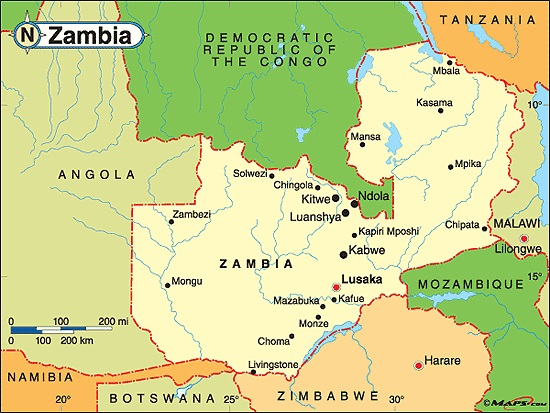Lavish homes left by fleeing Guptas up for sale
Zambia sets up sinking fund to avoid Eurobond default

Zambia has set aside US$10 million in readiness to service over US$3 billion in debt secured in Eurobonds from foreign capital markets for infrastructure development ahead of the due dates commencing in the next three years, Margaret Mwanakatwe, the finance minister has disclosed.
Meanwhile, the European Union has raised concerns about Zambia’s continued relationship with China at the expense of investors and traditional donors from the West, including the International Monetary Fund (IMF).
The US$10 million being set aside or commonly referred to as the sinking fund is a means of repaying funds borrowed through a bond issue through periodic payments to a trustee who retires part of the issue by purchasing the bonds in the open market.
The contingent fund will see the country avert defaulting when the loans are due for servicing starting 2021 until 2027.
Mwanakatwe told The Southern Times that the Zambian government owes local and external debtors in excess of US$17 billion, of which 30% are Chinese loans.
Allaying recent sentiments by various economic commentators that the government’s expenditure pattern and increased borrowing were a recipe for defaulting on the country’s loans and other obligations, Mwanakatwe reiterated the government’s resolve to ensure it met such obligations and not at any time had it defaulted.
“I want to state categorically that the PF (Patriotic Front) government has not and will not default on any of its external debt. We will ensure that every month when it’s time to pay the debt, we will pay. When it’s time to pay the Eurobond bond we will pay,” she said.
The minister further dispelled rumours that Zambia has lost some of its sovereign assets, including power company ZESCO, and the national broadcaster, Zambia National Broadcasting Corporation (ZBC), and the national international airport, the Kenneth Kaunda (KK) International Airport.
“You will find that when people talk about ZESCO being taken by the Chinese, they cannot because we have a sovereign guarantee, which we have put on a special purpose vehicle, outside of ZESCO. So ZESCO has not been collateralised at all. In this special purpose vehicle, we have given a sovereign guarantee. The same for ZNBC and the (KK) International Airport,” she said.
“Zambia’s bond is the best performing sovereign bond on the market bond now. For me, that is confidence that this economy is heading in the right direction. As Government four percent growth is an underestimate, we are now aiming at a growth rate of around 8-10% per annum economy,” the minister said, referring to the bond that recently traded around 17%.
The Centre for Trade and Policy Development (CTPD) and the Economist Intelligence Unit (EIU) are among critics that argue that Zambia risked defaulting on the impending Euro bond repayment in the next three years, claiming that relations with creditors were on the wane because of the increased debt portfolio.
Financial analyst Trevor Hambayi in his recent case study argued that Zambia’s debt repayment capacity had been affected by an increased debt burden while the sinking fund budget had not taken off the ground as no resources had been set aside as contingent.
EIU argues that Zambia had not put the loan deal with the IMF as a priority.
The London-based think-tank has doubted Zambia’s capacity to repay the US$3 billion in the absence of the IFM’s US$1.3 billion financial bailout that has been delayed because of various shortcomings, among other policy uncertainties.
“Without an IMF programme, it is unclear how Zambia will manage its US$3 billion in Eurobond debt. A first US$750 million bullet repayment is due in 2022, but there is no obvious way of meeting the commitment (underscoring the unproductive use of the funds). The sinking fund being established seems to be an implausible solution alongside a high budget deficit, and the same goes for refinancing, given recent downgrades of Zambia’s sovereign debt by credit rating agencies,” EIU argued in a report.
On fiscal policy, the EIU expects continued high spending from the government. “Spending will be high in 2019-21, exhausting all buffers. There will eventually be a correction, which we expect to occur from 2022, after the election.
“For 2019-21, high expenditure will be driven by foreign-debt-financed capital outlays, as well as debt-servicing. As the government will have difficulty raising finance locally (treasury securities are routinely undersubscribed), recurrent spending will actually decline, including in the public wage bill. Overall, however, spending as a share of GDP will be unusually high during these years.”
The EIU fears that Zambia’s over dependence on China could be problematic.
“Hence, the government’s dependency on China will be a double-edged sword, providing some financial relief in the short term, but compromising relations with Western donors and investors (many of whom regard an IMF package as indispensable) as well as long-term debt sustainability,” according to the EIU.
Mwanakatwe, however, remains optimistic the coming of IMF next month would provide hope for fruitful discussions on various matters of interest.
By Jeff Kapembwa












Leave a Reply
Be the First to Comment!
You must be logged in to post a comment.
You must be logged in to post a comment.